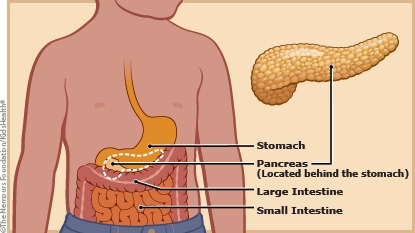Find a Provider
From well-child visits to specialized treatment of complex illnesses and injuries, we offer comprehensive care from an exceptional team of doctors, nurses and allied professionals.
- Parents Home
- Para Padres
- A to Z Dictionary
- Allergy Center
- Asthma
- Cancer
- Diabetes
- Diseases & Conditions
- Doctors & Hospitals
- Emotions & Behavior
- First Aid & Safety
- Flu (Influenza)
- Food Allergies
- General Health
- Growth & Development
- Heart Health & Conditions
- Homework Help Center
- Infections
- Newborn Care
- Nutrition & Fitness
- Play & Learn
- Pregnancy Center
- Preventing Premature Birth
- Q&A
- School & Family Life
- Sports Medicine
- Teens Home
- Para Adolescentes
- Asthma
- Be Your Best Self
- Body & Skin Care
- Cancer
- Diabetes
- Diseases & Conditions
- Drugs & Alcohol
- Flu (Influenza)
- Homework Help
- Infections
- Managing Your Weight
- Medical Care 101
- Mental Health
- Nutrition & Fitness
- Q&A
- Safety & First Aid
- School, Jobs, & Friends
- Sexual Health
- Sports Medicine
- Stress & Coping
Pancreatitis
What Is Pancreatitis?
Pancreatitis is an inflammation (irritation and swelling) of the pancreas. With treatment, most kids with pancreatitis (pan-kree-eh-TYE-tis) recover fully within a week or so.
What Are the Types of Pancreatitis?
Pancreatitis can be acute (last only a few days) or chronic (long-lasting or happening more than once). In kids, it’s usually acute and doesn’t come back.
What Are the Signs & Symptoms of Pancreatitis?
Kids with pancreatitis usually have sudden, severe pain in the upper belly. They also might have pain in the back, chest, or sides.
Other pancreatitis signs include:
Children with chronic pancreatitis may also have:
- diarrhea
- greasy poop that is hard to flush
- weight loss and poor growth
- poor blood sugar control (high blood sugar or low blood sugar)
- damage to the pancreas
Some kids who have repeated episodes of acute pancreatitis can develop chronic pancreatitis.
What Does the Pancreas Do?
The pancreas is a large gland that sits behind the stomach. It makes digestive enzymes that are released into the small intestine to help break down food. The pancreas also makes insulin and glucagon, two hormones that help control blood sugar levels.

What Causes Pancreatitis?
Common causes of pancreatitis in kids include:
- gallstones (stones in the gallbladder) that can block ducts (tubes) that carry enzymes from the pancreas
- infections
- some medicines
- very high triglycerides (a type of fat in the blood)
Some medical conditions or illnesses, such as cystic fibrosis or celiac disease, can increase a child's risk for pancreatitis. Sometimes, the cause of pancreatitis isn't found.
How Is Pancreatitis Diagnosed?
To diagnose pancreatitis, doctors will order blood tests, including tests that measure the pancreatic enzymes amylase and lipase. If these levels are high, an abdominal ultrasound can help the doctor check the liver and pancreas and look for gallstones.
Other tests, such as a CAT scan or MRI, can check for inflammation or damage to the pancreas.
How Is Pancreatitis Treated?
Most kids with pancreatitis are treated in the hospital with intravenous (IV) fluids, nutrition, and pain medicine. They're watched carefully by the care team to make sure they're getting better and that no other problems develop.
Some kids with very mild pancreatitis who can eat and drink without a problem and don’t have a lot of pain can be treated at home.
Some children with pancreatitis need a procedure called endoscopic retrograde cholangiopancreatography (ERCP). ERCP lets doctors see the ducts in the pancreas and liver. During the ERCP, doctors can remove gallstones or find and treat other causes of pancreatitis.
What Problems Can Happen?
Most children with acute pancreatitis recover without any problems. Fluid in and around the pancreas can happen, but usually gets better on its own. Sometimes, though, doctors need to drain the fluid.
Kids with chronic pancreatitis have trouble digesting food and usually need to take pancreatic enzyme supplements. Chronic pancreatitis may lead to diabetes, but this usually takes many years to happen.
How Can Parents Help?
Help your child recover by following the care team’s advice for what your child should eat and drink, whether they should take any medicines, and when to follow up.

© 1995- The Nemours Foundation. KidsHealth® is a registered trademark of The Nemours Foundation. All rights reserved.
Images sourced by The Nemours Foundation and Getty Images.


